Are cashews good for high blood pressure?
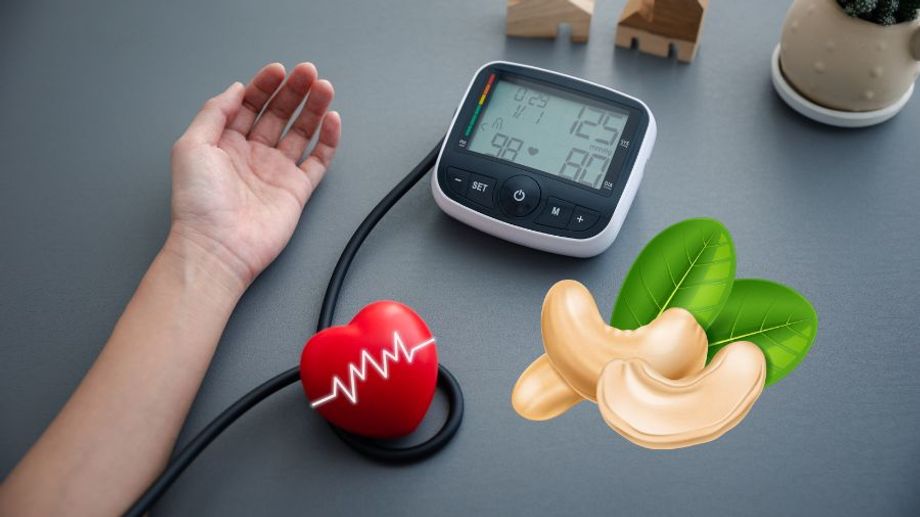
Mục lục
Cashews are considered a superfood. They provide the body with a lot of nutrients and support in the treatment of diseases. According to a recent study in Chennai, tested on 300 people with type 2 diabetes. It was discovered that cashews have a great effect in preventing high blood pressure and maintaining stable cardiovascular health. Let's find out what cashews have that has so many effects!
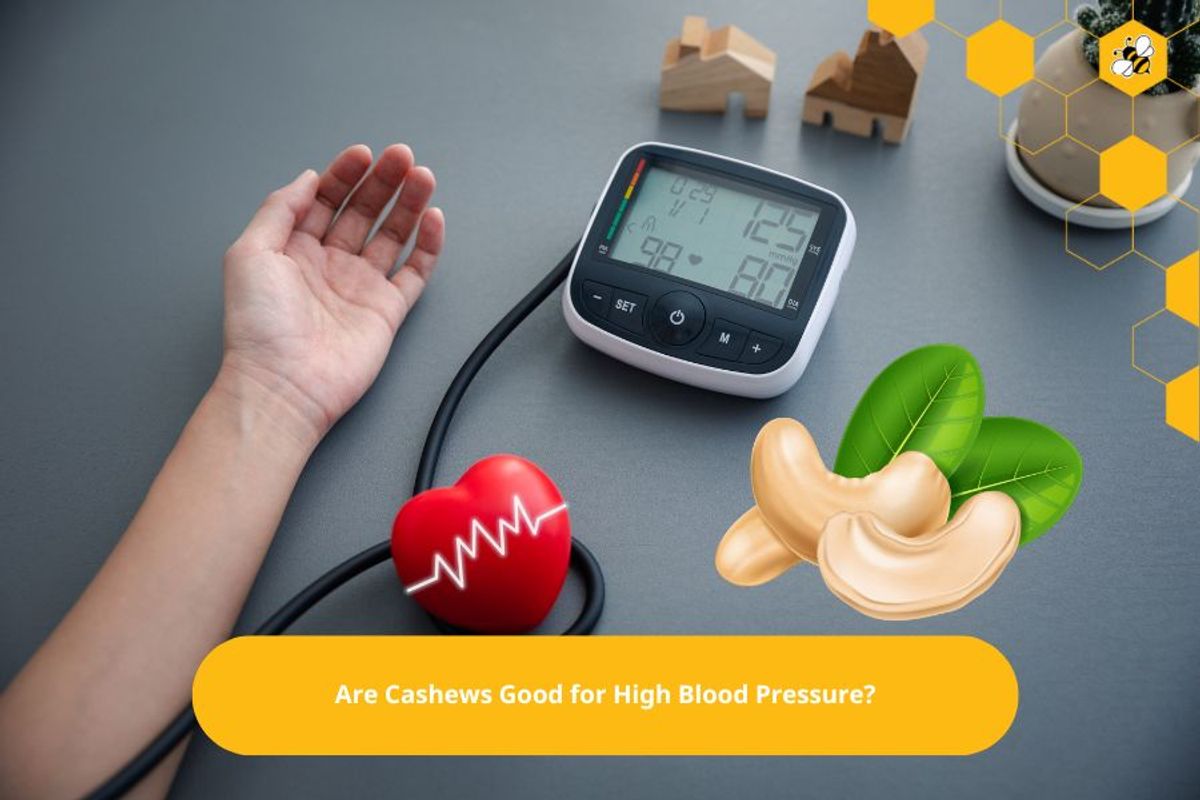
Are Cashews Good for High Blood Pressure?
Eating cashews may benefit your health, especially when it comes to controlling high blood pressure. Here are some facts about cashews and their benefits:
Nutritional value of cashews
Cashews are packed with nutrients, including:
Protein: 5 grams
Fat: 12 grams (especially unsaturated fat, which has been linked to a reduced risk of premature death and heart disease)
Carbohydrates: 9 grams
Zinc: 15% of the daily requirement
Magnesium: 20% of the daily requirement
Manganese: 20% of the daily requirement
Copper: 69% of the daily requirement
Selenium: 10% of the daily requirement
Vitamin K: 8% of the daily requirement
Vitamin B6: 7% of the daily requirement
Cashews are also rich in antioxidants, which help protect the heart and prevent heart disease.
Protein: 5 grams
Fat: 12 grams (especially unsaturated fat, which has been linked to a reduced risk of premature death and heart disease)
Carbohydrates: 9 grams
Zinc: 15% of the daily requirement
Magnesium: 20% of the daily requirement
Manganese: 20% of the daily requirement
Copper: 69% of the daily requirement
Selenium: 10% of the daily requirement
Vitamin K: 8% of the daily requirement
Vitamin B6: 7% of the daily requirement
Cashews are also rich in antioxidants, which help protect the heart and prevent heart disease.
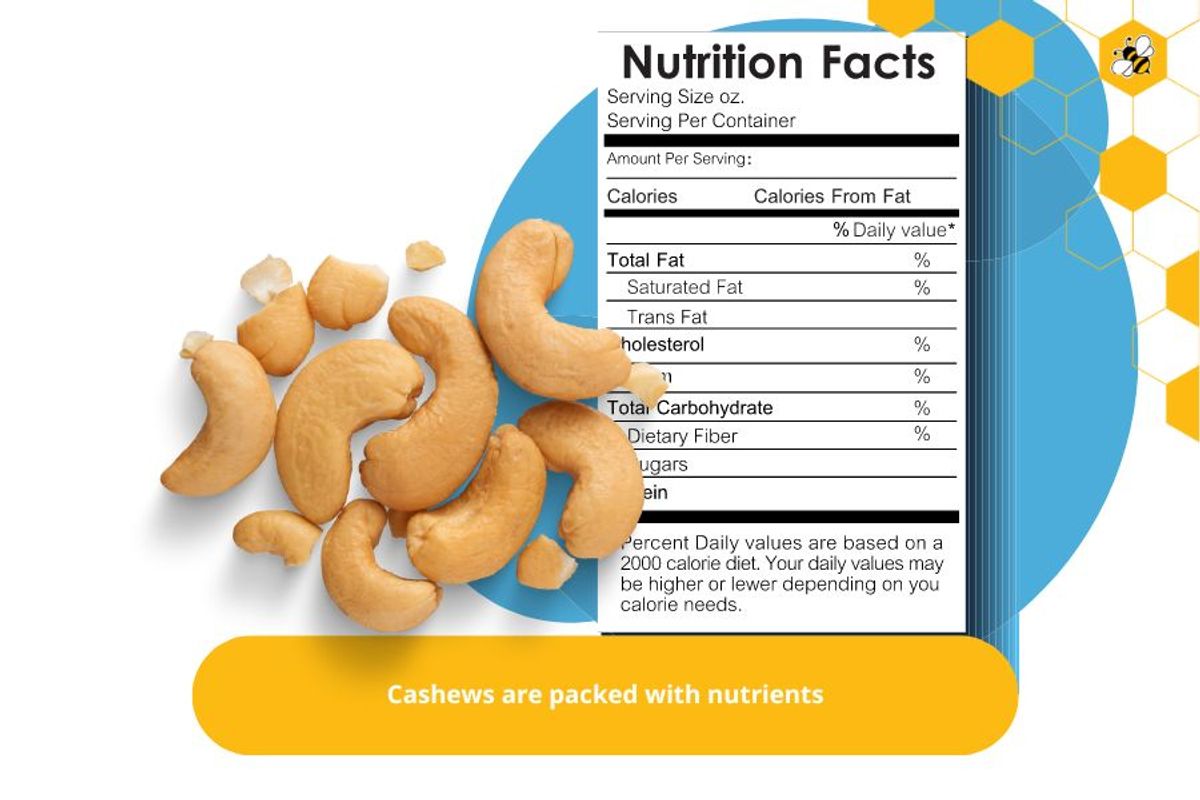
Benefits of Cashews for Blood Pressure
Improves arterial health.
Reduces inflammation associated with cardiovascular disease.
Reduces the risk of blood clots, which can lead to strokes and heart attacks.
Reduces the risk of high blood pressure.
Reduces the risk of premature death from cardiovascular disease.
Reduces inflammation associated with cardiovascular disease.
Reduces the risk of blood clots, which can lead to strokes and heart attacks.
Reduces the risk of high blood pressure.
Reduces the risk of premature death from cardiovascular disease.
However, it should be noted that cashews are only part of an overall diet. You should combine them with other foods to ensure variety and balance in your daily diet. If you have any health problems, consult your doctor for more specific advice.
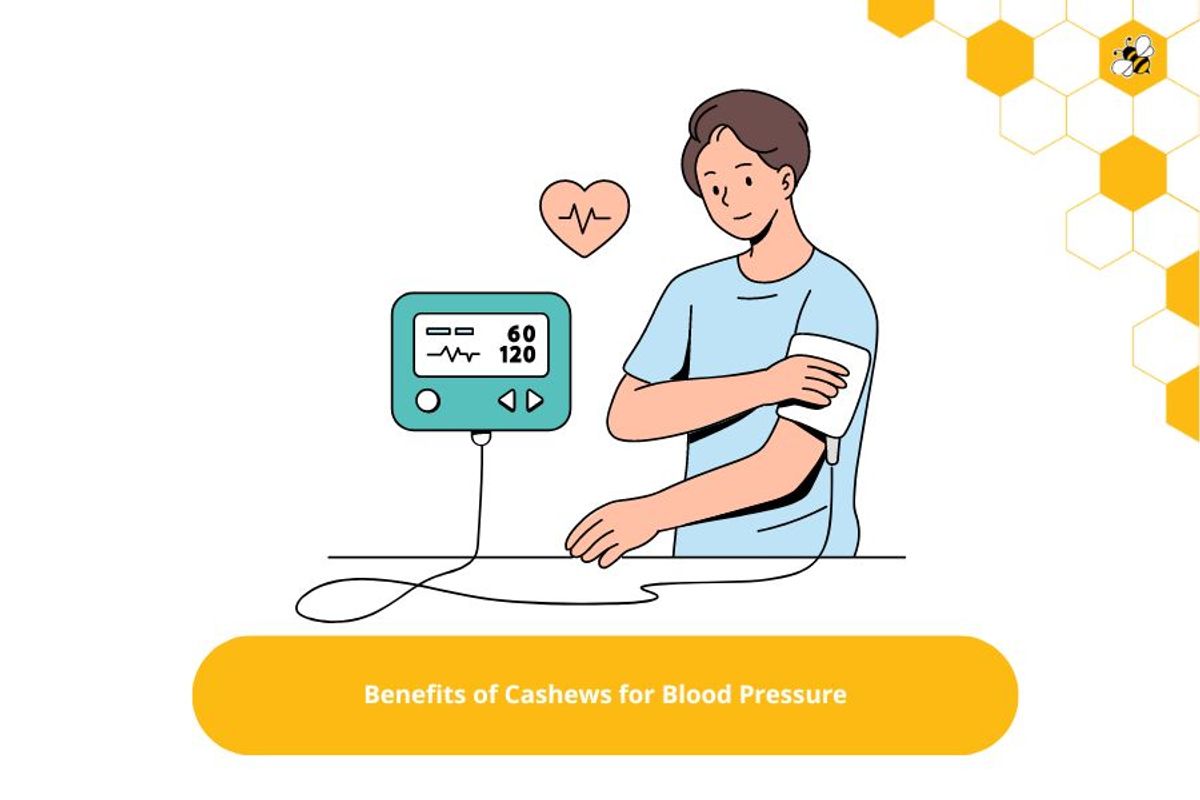
What kind of diet do people with high blood pressure need?
The principle in preparing food for people with high blood pressure is low in salt, rich in magnesium, potassium, calcium, and fiber, increased unsaturated fat, increased sedation, reduced saturated fat sources such as fatty meat, fat, butter, ... and reduced stimulants. Some detailed instructions:
Reduction regimen
Reduce salt intake: Limit the use of salt in the daily menu, estimated not to exceed 6g/day.
Reduce fat: Avoid menus containing high calories, especially for overweight and obese people. Calorie levels should be around 35 - 40 kcal/kg of body weight.
Reduce alcohol consumption: Minimize alcohol consumption.
Reduce fat: Avoid menus containing high calories, especially for overweight and obese people. Calorie levels should be around 35 - 40 kcal/kg of body weight.
Reduce alcohol consumption: Minimize alcohol consumption.
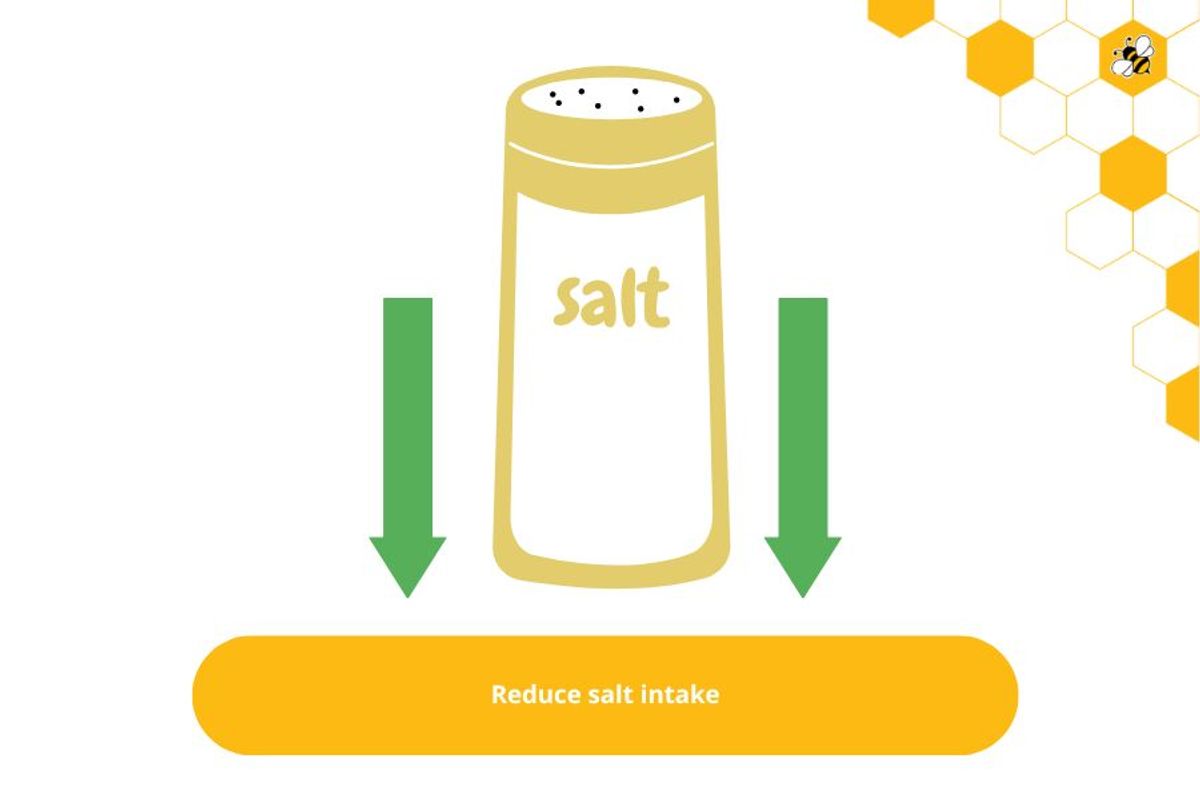
Increase
Increase the use of calcium-rich foods: Including sesame, peanuts, vegetable oil, and fish oil.
Increase the use of potassium-rich foods and protective substances: Including green vegetables, tubers, beans, and fruits.
Increase the use of potassium-rich foods and protective substances: Including green vegetables, tubers, beans, and fruits.
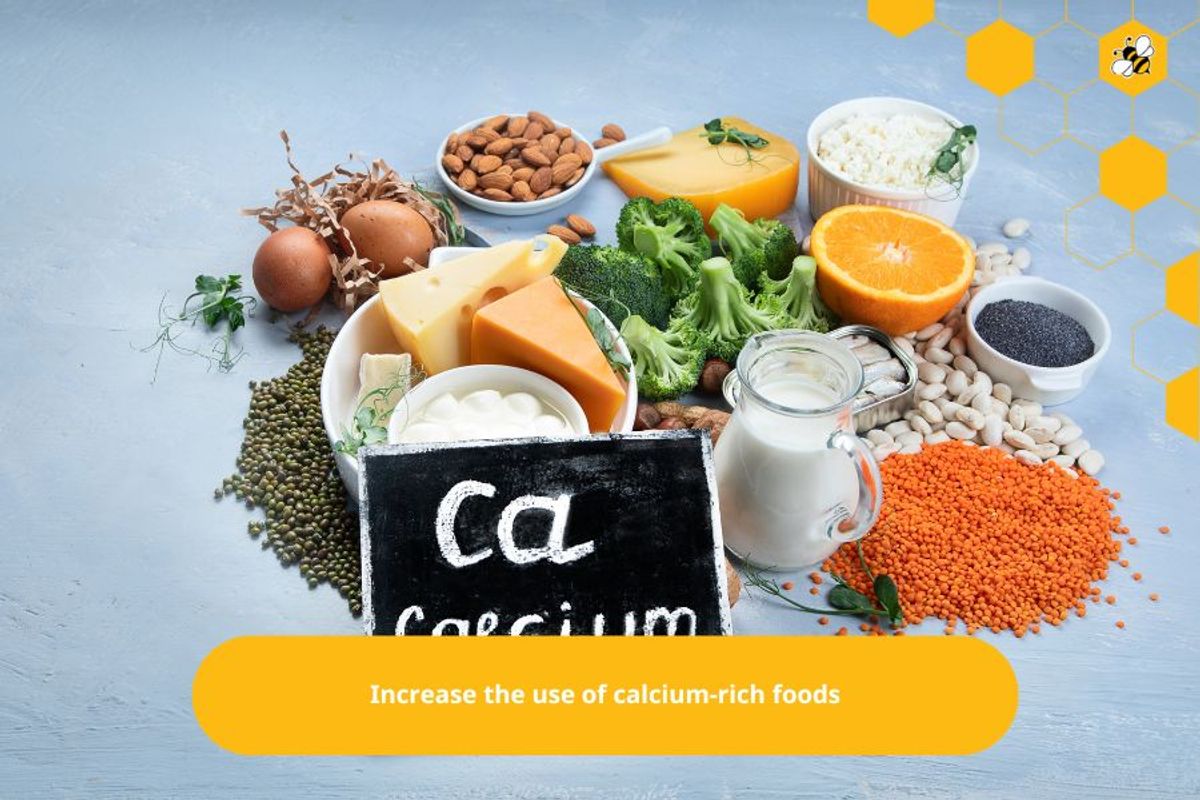
Build a lifestyle of “1 increase, 1 decrease, and 1 quit”
Increase exercise: Do light physical activities.
Reduce stress: Avoid unhealthy lifestyles and frequent stress.
Quit smoking: Smoking is the main cause of cardiovascular diseases, so you should not use tobacco.
Eat cooked food and drink boiled water and eat slowly and chew thoroughly: Increase the number of meals per day to reduce the portion of food in one meal.
Reduce stress: Avoid unhealthy lifestyles and frequent stress.
Quit smoking: Smoking is the main cause of cardiovascular diseases, so you should not use tobacco.
Eat cooked food and drink boiled water and eat slowly and chew thoroughly: Increase the number of meals per day to reduce the portion of food in one meal.

How to eat cashews for good health for people with high blood pressure
People with high blood pressure should eat cashews in moderation. Cashews contain unsaturated fatty acids, which help reduce blood pressure. Combined with reasonable exercise, a proper nut diet will help maintain stable blood pressure and improve overall health. In addition to cashews, you can also consider adding other nuts such as walnuts, chestnuts, and almonds. However, follow your doctor's advice and carefully review the ingredients before adding them to your daily diet.
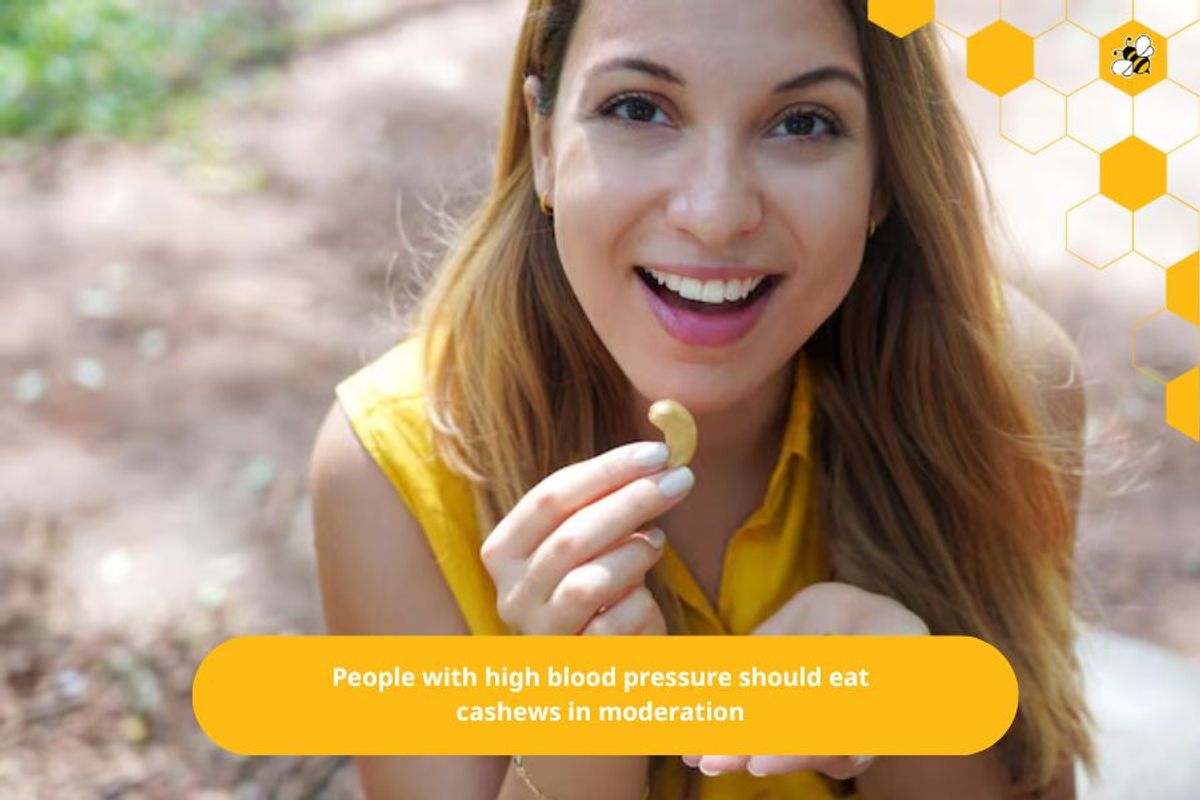
In addition to cashews, what other nuts should people with high blood pressure eat?
In addition to cashews, there are several other nuts that are also beneficial for people with high blood pressure. Here is a list of some nuts you can incorporate into your diet:
Almonds: Almonds are high in unsaturated fats, which help improve heart health and reduce the risk of high blood pressure.
Pecans: Pecans help maintain heart health by lowering cholesterol and blood pressure.
Walnuts: Walnuts are high in antioxidants and omega-3 fatty acids, which help improve heart health and reduce the risk of high blood pressure.
Hazelnuts: Hazelnuts provide a lot of antioxidants and fiber, which help support heart health and control blood pressure.
Cashews: Cashews provide magnesium and fiber, which can help control blood pressure.
Pistachios: Pistachios are high in antioxidants and potassium, which help support heart health and blood pressure control.
Pistachios: Pistachios are high in antioxidants and potassium, which help support heart health and blood pressure control.
Be sure to choose nuts without added salt or sugar to maximize the heart health benefits.
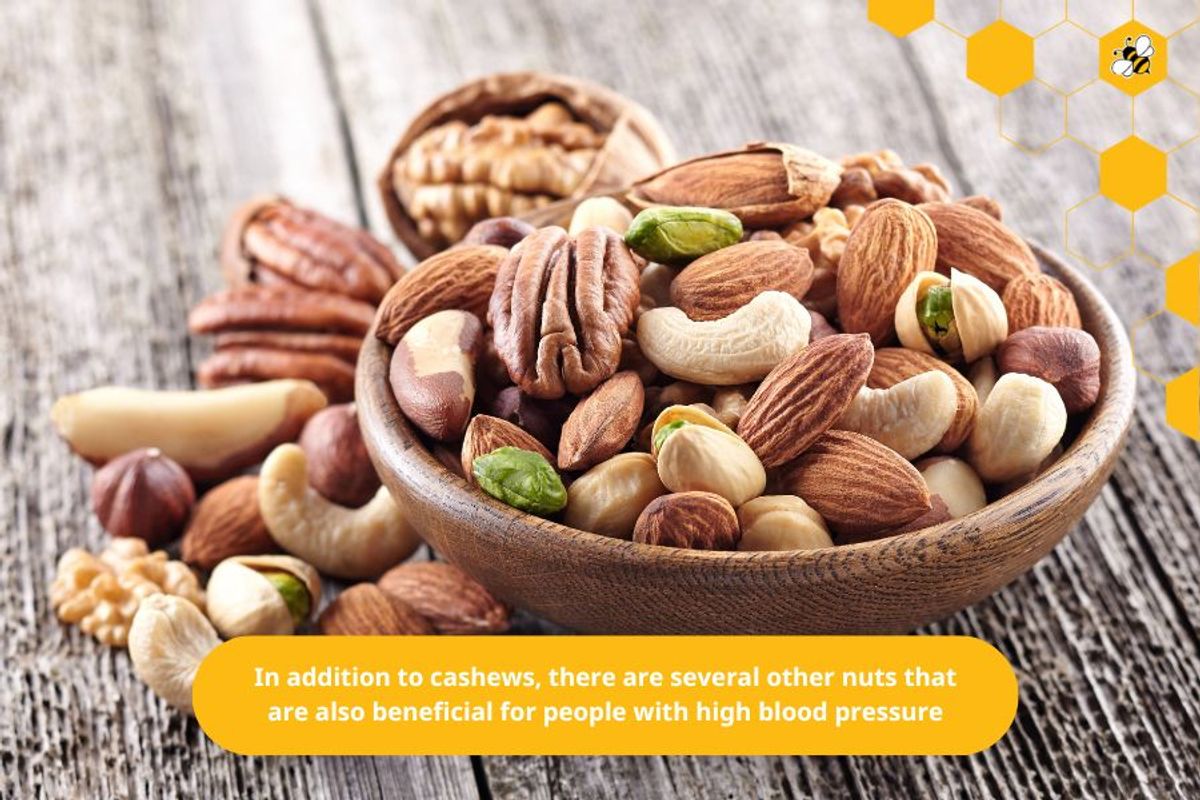
Summary
Everyone believes that foods high in calories will lead to weight gain and increased cholesterol. However, many studies have shown that nuts, especially cashews, contain substances that can prevent and limit the development of these problems. Because monounsaturated and polyunsaturated fatty acids found in cashews can reduce LDL cholesterol and triglycerides, reducing the risk of cardiovascular disease, stroke, and heart attack. The US FDA has acknowledged and stated on the packaging of cashews that "Eating about 42.5 grams of cashews per day as part of a diet low in saturated fat and cholesterol may reduce the risk of heart disease".
The effects of cashews have been proven in studies in Chennai. During the 3-month study, all patients were asked to follow a standard diet. Half of the test subjects were asked to consume only 30 grams of unsalted raw cashews per day. The results of the study of people who ate cashews showed that their blood pressure was able to decrease by about 6mm. Meanwhile, their high-density lipoprotein (HDL) or 'good cholesterol' levels also increased by 2 milligrams. Moreover, there were no harmful effects on body weight or blood sugar levels.
The effects of cashews in addition to supporting the above problems, they are also useful in supporting digestion, strengthening bones, improving brain function, and fighting inflammation, ... You can refer to some notes and standard diets for people with the blood pressure above to be able to improve and enhance the health of yourself and your family!
The effects of cashews have been proven in studies in Chennai. During the 3-month study, all patients were asked to follow a standard diet. Half of the test subjects were asked to consume only 30 grams of unsalted raw cashews per day. The results of the study of people who ate cashews showed that their blood pressure was able to decrease by about 6mm. Meanwhile, their high-density lipoprotein (HDL) or 'good cholesterol' levels also increased by 2 milligrams. Moreover, there were no harmful effects on body weight or blood sugar levels.
The effects of cashews in addition to supporting the above problems, they are also useful in supporting digestion, strengthening bones, improving brain function, and fighting inflammation, ... You can refer to some notes and standard diets for people with the blood pressure above to be able to improve and enhance the health of yourself and your family!